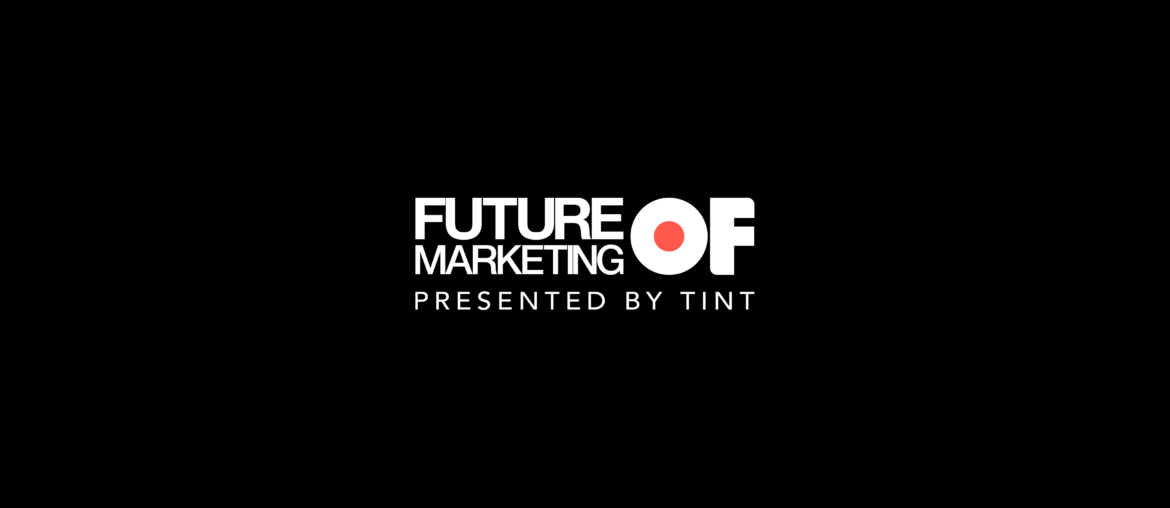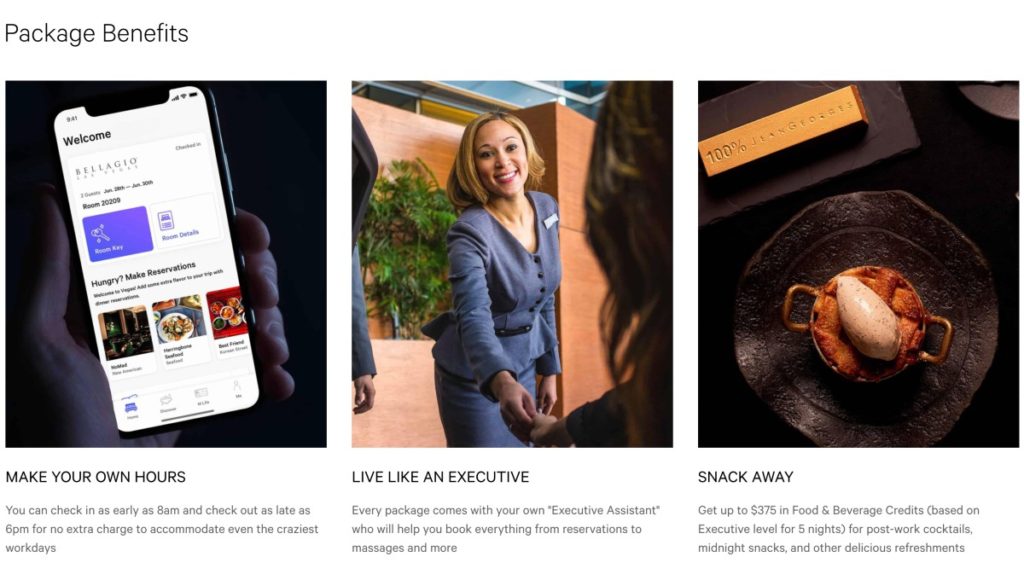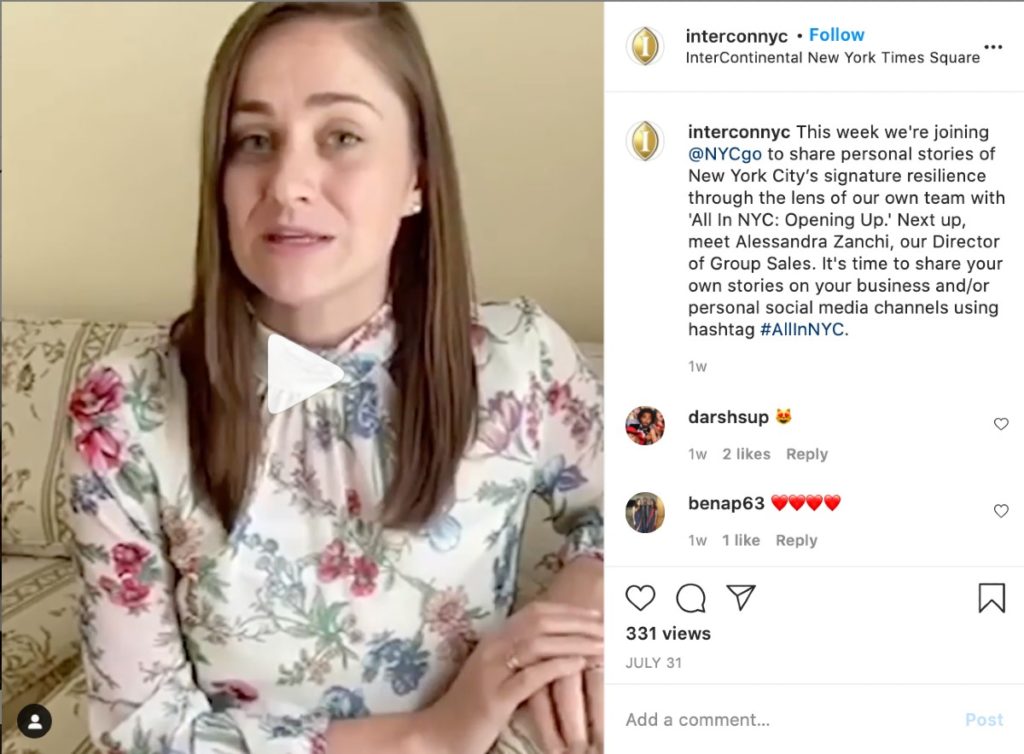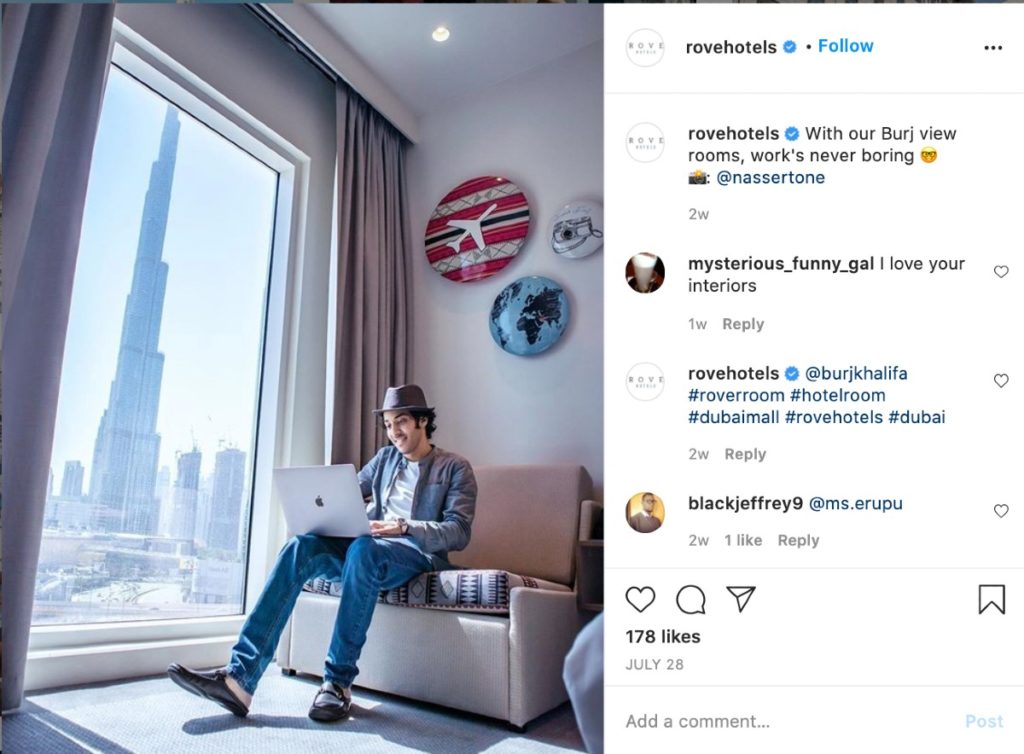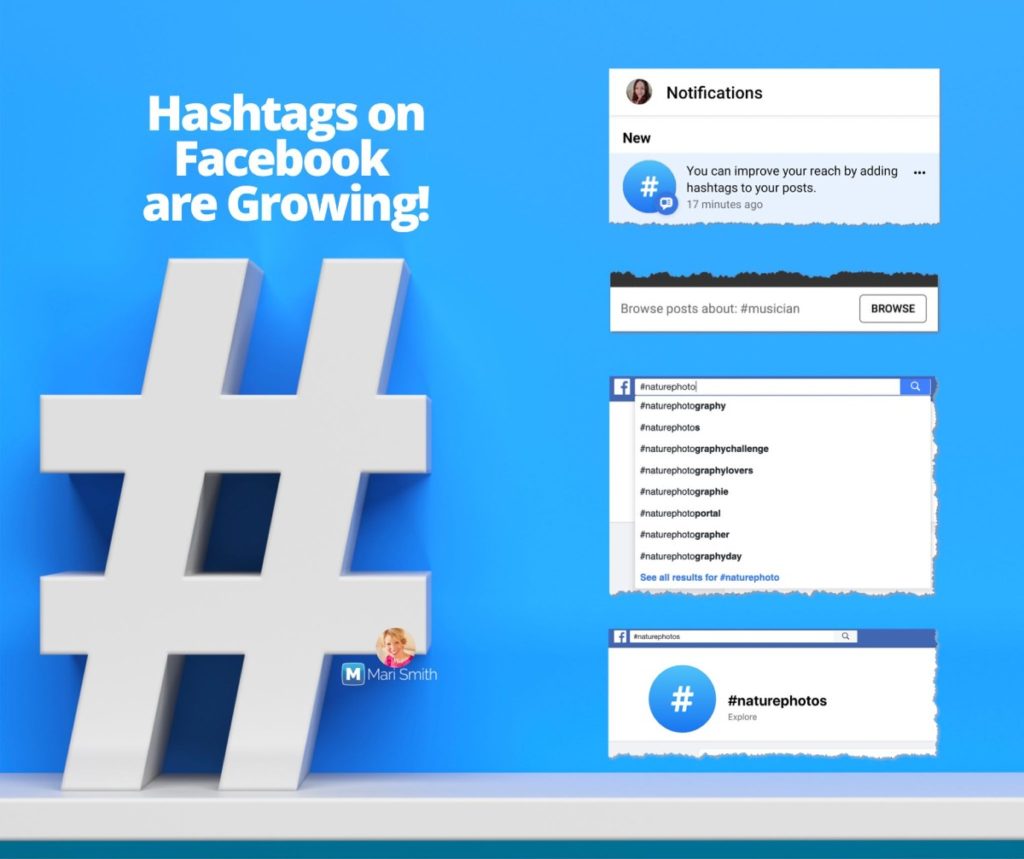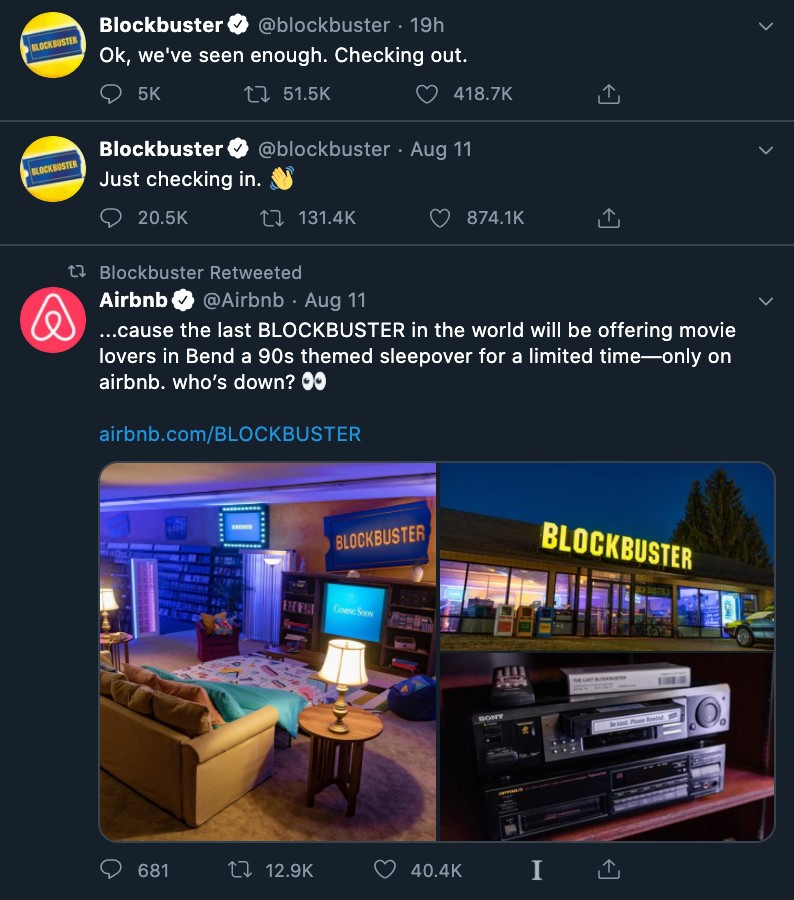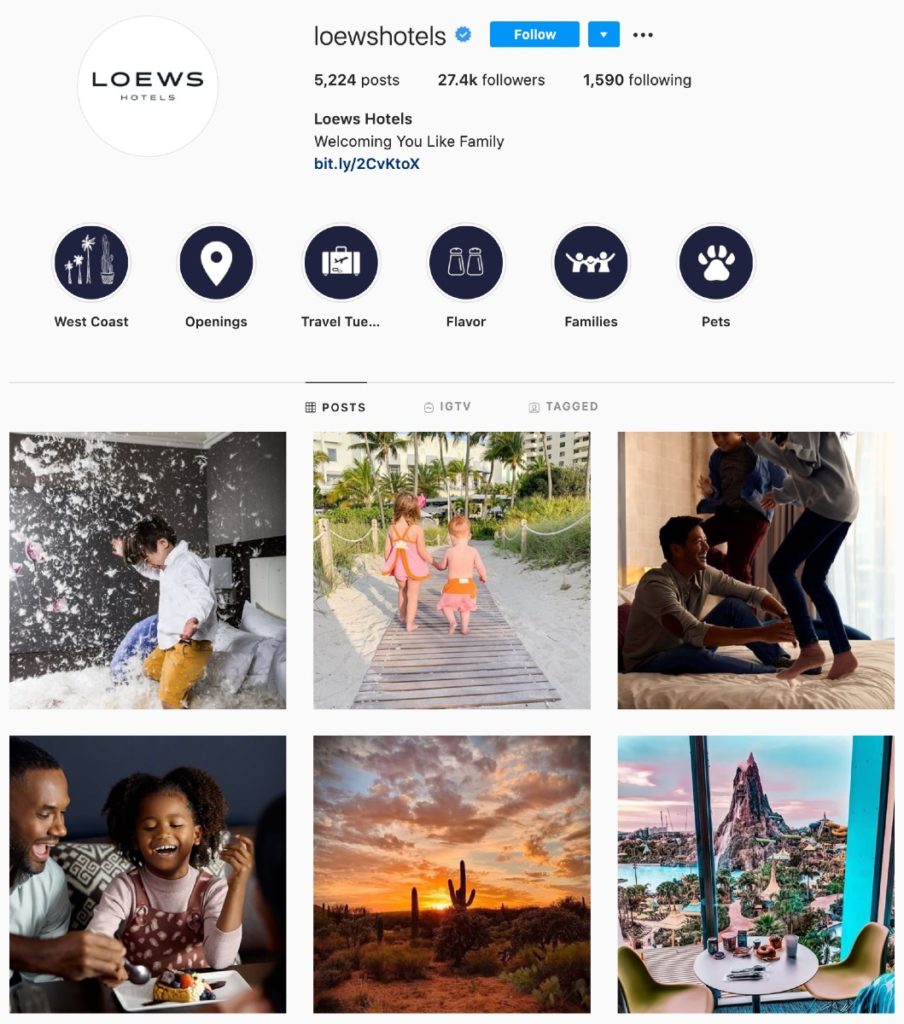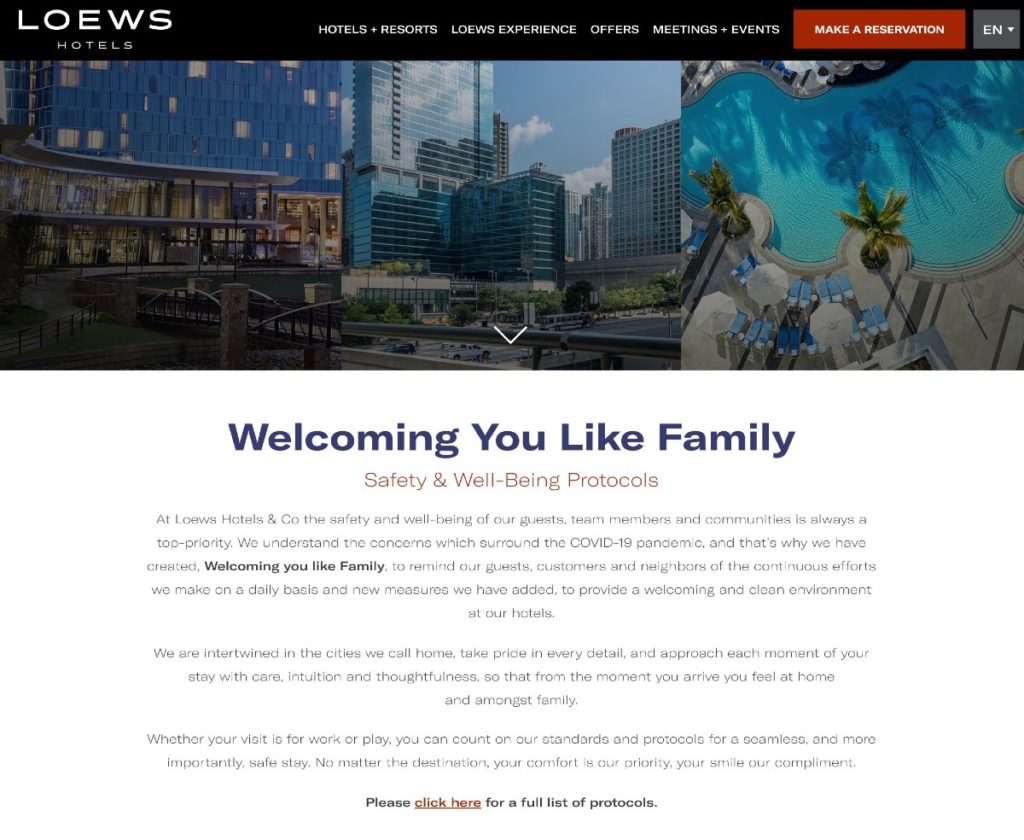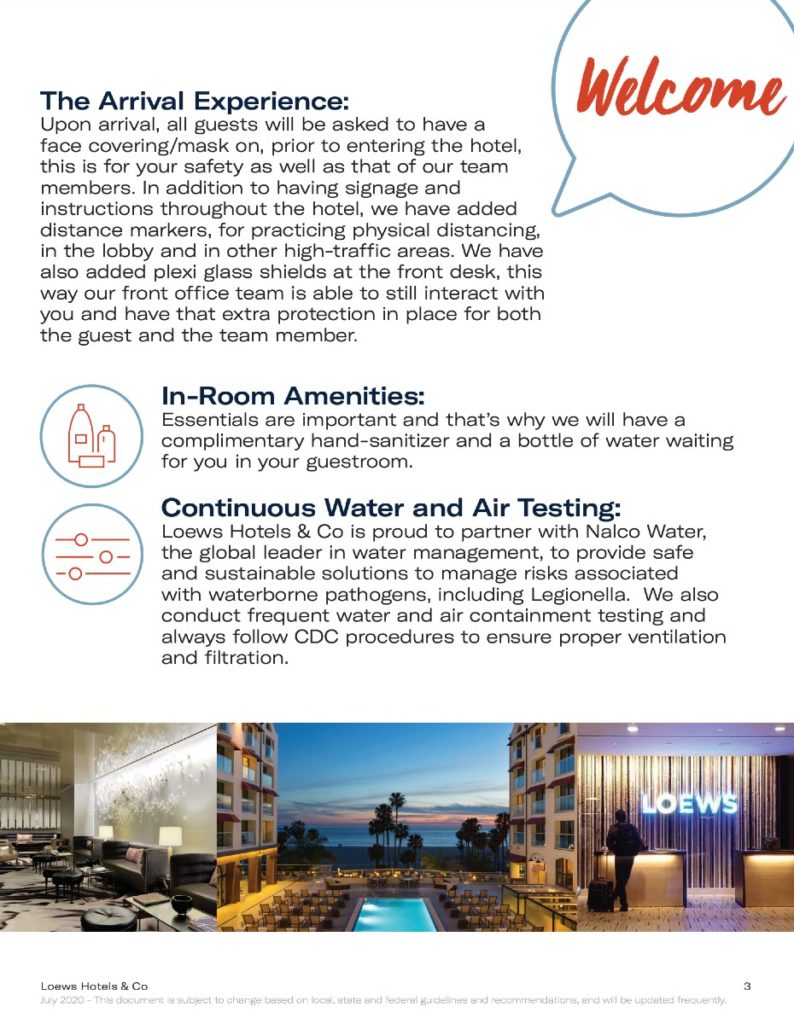This content originally appeared August 13, 2020 as part of the Future of Marketing weekly email series. Subscribe here.
Staycations. Touchless travel. Co-working hubs. Distributed talent.
“A focus on ads both in town and in markets that are a reasonable drive away will become the norm,” we shared in this article. This means we will see more local advertisements, marketing campaigns, and remote-friendly offerings.
Plan for multiple scenarios and personas, become a resource – and provide peace of mind to those considering your brand. This is your chance to highlight your values, be more intentional with your messaging, and differentiate from competitors by turning adversity into opportunity.
Work from… anywhere
Hotels are rolling out remote-friendly initiatives for workers who need a quiet (or new) spot to work. MGM Resorts launched ‘Viva Las Office’ – which offers three packages, including “The Associate,” “The Manager,” and “The Executive.” Some perks include discounted airfare and concierge personnel who act as an ‘Executive Assistant’ – a great tweak to their messaging.
InterContinental New York Times Square is sharing videos created with employee-generated content (EGC) to promote changes – including “entire floors for teams” and a creative and productive space for people to escape their tiny apartments. Its Instagram feed also shares beautifully curated guest and fan images.
In Dubai, Rove Hotels unveiled a Podcast Studio for creators, and is repurposing user-generated content (UGC) across its digital channels to exude a ‘remote work’ essence.
Notice how hotels and hospitality marketers are adapting their brand’s messaging, the value they provide, and how they’re pivoting, overall. Marketers are focusing on more than ‘vacationers’ and domestic travelers. Now, they’re also engaging remote workers – shining a light on rising customer personas and the future of hospitality.
Our take? Identify market gaps, get creative with your offerings, be clear with your messaging, and simplify your experience to ease customer reception.
#HashtagsAreIn
Facebook is now promoting the use of hashtags on posts – and with good reason.
A study by social media monitoring company Digimind indicates that social conversations about a brand happen on hashtags – and not @brand mentions. In fact, “an overwhelming 96 percent of total U.S. retail social brand mentions use brand hashtags, over the brand name.”
This doesn’t mean you should plaster your social media descriptions with hashtags, but it does emphasize an opportunity to explore and experiment with hashtags’ searchability potential.
We’ve seen it with Instagram and with TikTok – hashtags have a tendency to increase engagement and help users connect around their common interests. So, why not identify what platforms your target audience are most active on, the topics they search and are interested in – and meet them there?
What we’re reading…
- TikTok’s future remains unclear, as the U.S. Department of State announced The Clean Network program to remove all “untrusted” Chinese apps.
- Marriott introduces new digital content to reimagine meeting and event spaces guided by cleanliness experts.
- Watch: Marketoonist Tom Fishburne on the importance of humor right now.
- 🍿 You can now rent the last Blockbuster in the world via Airbnb to relive a 90s living room experience – complete with snacks and movies. And Blockbuster made a subtle Twitter appearance to get people talking.
#BrandCrush
Loews Hotels, one of the nation’s leading hoteliers, is differentiating itself with an omni-channel brand campaign – “Welcoming You Like Family” – to communicate a safe stay. This campaign, which was in development for over a year, captures feelings of care, belonging, familiarity, and comfort that embodies the Loews guest experience.
When you visit Loews Hotels’ Instagram profile, you’re immediately drawn to an aesthetically pleasing and light-hearted collection of content created by its fans and guests (and a clear call to action in the bio).
Upon clicking the link, Loews Hotels takes you to the Safety & Protocols page – where they communicate their efforts to provide a seamless and safe experience.
On the Safety & Protocols page, Loews Hotels (once again) directs visitors to a clear call to action to access an in-depth overview of the changes the hotel is making – from the arrival experience to its contactless and cleaning standards. Thus, emphasizing its ‘seamless’ promise.
The new safety and well-being protocols document, which was named “Welcoming you Like Family,” displays user-generated content throughout each page – achieving a more ‘authentic’ sentiment through the lens of its guests.
Loews shares in a press release, “The ‘Welcoming You Like Family’ brand message stemmed from a positioning exercise Loews Hotels conducted through internal stakeholder interviews, external focus groups, and a multi-disciplinary internal workshop.”
In other words, they took their time to understand how people would be affected by specific changes – and used these insights to realign their positioning and determine how to efficiently (and best) communicate this.
Tell us what you enjoy about Future of Marketing for a chance to win lunch delivered to your door – on us.
If you enjoyed reading this brief, subscribe to Future of Marketing.
